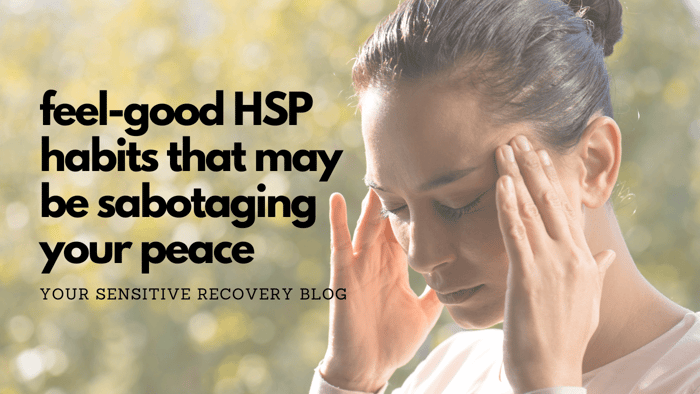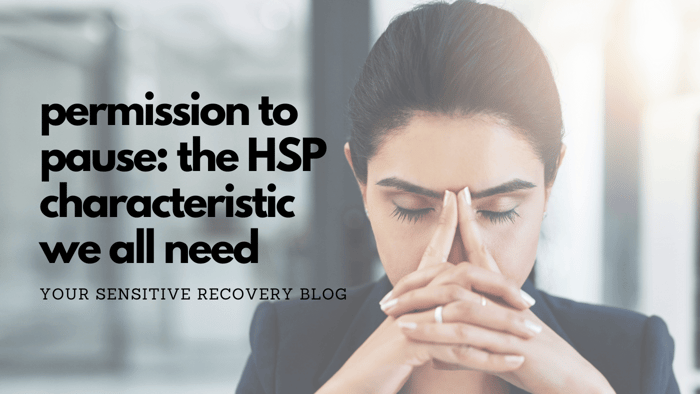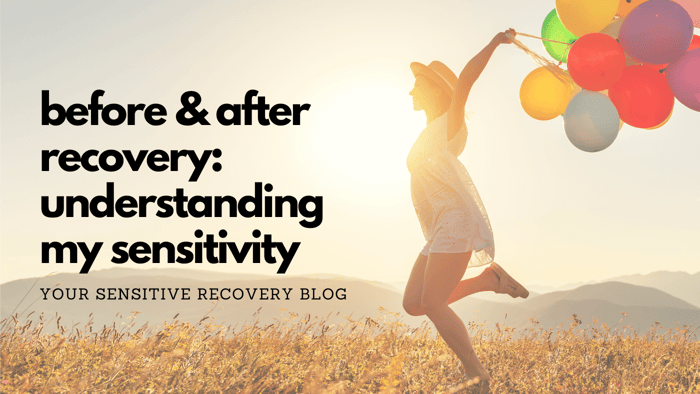"Are you crying again?" I hear those words a lot, often in a concerned and curious way, but sometimes with a tone of exasperation. Yep, that's life as an HSP! Most Highly Sensitive People have been told more times than we can count that we're “soooo emotional” and that we “cry over everything.”
This can feel particularly humiliating, and it can lead us to believe that we're flawed. But you know what? Crying isn’t a weakness. It’s a natural, healthy response to a deeply experienced world.
In this post, I’ll be exploring why HSPs cry more easily than others, why it's not just okay but actually important for us, and how we can care for ourselves when the tears begin to flow.
🥹 The Science of Welling Up
Crying is one of the most human things we do. In fact, while many animals exhibit signs of distress, humans are the only species known to shed tears of emotion. It’s one of the ways our bodies release built-up emotion, like pressure escaping a valve. And for Highly Sensitive People, we really need that frequent valve action.
HSPs process sensory input and emotional experiences more deeply than others. Our nervous systems are wired for a kind of intensity that not everyone feels. A moving piece of music, a moment of kindness, a heartbreaking story about a shelter pup - those things don’t just touch us, they envelop us, like waves.
When we cry in response to emotion, we’re not overreacting. We’re reacting fully.Did you know there are actually three types of tears? There are basal tears (meant to keep your eyes from drying out), reflex tears (to protect from irritants, like when you're slicing onions), and emotional tears (which contain stress hormones and natural painkillers). Yeah, did you catch that?
Emotional tears = stress leaving the body.
Emotional tears help us regulate stress levels and restore emotional balance. Crying activates our parasympathetic nervous system (the "rest and digest" branch), which helps the body calm down after a surge of feeling.
So in many ways, crying isn't what overwhelms us (although it can feel that way). It is the very thing that helps us recover from emotional overwhelm.
😭 Coping with Crying-Shame
Despite the benefits, we Highly Sensitive People often carry shame about how easily and how often we cry. Maybe we learned early on that tears can make some people uncomfortable. Maybe our tears were met with ridicule, rejection, or the expectation that we “toughen up.”
So what do we do? We stuff them.
I used to be a huge tear-stuffer, pushing everything down so far that when the dam eventually broke, I'd have no idea what I was even crying about.Here's the truth: the world often misunderstands sensitivity. And that's painful.
The shame we feel around crying isn’t about us. It’s about living in a culture that often celebrates emotional stoicism and scoffs at vulnerability.
So what can you do when you feel shame creeping in? First, name it to tame it. By simply stating to yourself, “I’m feeling shame right now,” you can interrupt the automatic urge to shut down or criticize yourself. Next, talk to yourself gently. Try replacing “Ugh, I’m doing it again” with “Of course I’m crying. This matters to me.” Lastly, remember what your tears are doing for you. They're helping you process emotions, release them, and heal.
🥲 Tips for Moving Through Tearful Times
Tears are not something to “fix" or "eliminate." But when they come often or feel overwhelming, as they do for most Highly Sensitive People, it helps to have supportive tools for riding the emotional wave. Here's what works for me:
- Let them come.
When safe, give yourself full permission to cry without trying to shut it down. Find a private space if you need to. With time, I found that the more I allowed my tears, the quicker and less intense many of my crying spells were. - Own your tears without apology.
If you're with other people who ask about or comment on your tears, don't apologize. Instead, matter-of-factly state that, yeah, you're crying, and it's just who you are. The more comfortable you are with your tears, the easier it is for other people to drop into that comfort with you. (However, remember that their comfort is not your responsibility.) - Practice grounding.
Sometimes crying can cause you to feel flooded or overwhelmed. To stay present, try grounding techniques like feeling your feet on the floor, identifying colors around the room, or slowing your breath by breathing in through your nose and out through pursed lips. Sensory-friendly tools like weighted blankets, gentle lighting, and essential oils can soothe your system after a good cry and signal to your body that you’re safe. - Track your tear triggers with curiosity.
Are you more prone to tears when you’re tired, lonely, or navigating conflict? Recognizing any patterns can help you meet yourself with more compassion and utilize preventive care as needed. - Reframe the story.
Instead of using phrases like “I broke down” or "I lost it," try “I released what needed to move through me" or simply, "I cried." Small shifts in language and meaning go a long way.
Ok, one more time for all you Highly Sensitive People in the back...THERE'S NOTHING WRONG WITH YOU. Tears are part of how you experience the world. You don’t need to toughen up. You need room to be yourself.
So the next time the tears flow, try not to resist them. Let them tell the truth of how deeply you feel. And let that be something you honor instead of hide. 💙
✨ Josie Munroe, LMFT is a licensed therapist and owner of JosieMunroe.com and Your Sensitive Recovery. As a recovered clinician and Highly Sensitive Person, she loves supporting others on their journeys to form new, empowered relationships with food, their bodies, and their sensitivity. Join the newsletter for a weekly boost of hope and inspiration. You deserve a recovery that works for you! ✨





